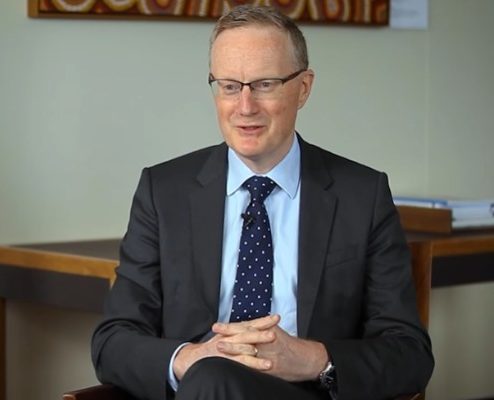- RBA Governor Philip Lowe will appear before the House Economics Committee
- Quantitative Easing (QE) has been unconventional, but also practised in other countries recently
- Committee Chair has voiced concerns over 'consequential' monetary policy
The House of Representatives Standing Committee on Economics will hold a public hearing with the Governor of the Reserve Bank of Australia (RBA), Dr Philip Lowe, on Friday, 5 February 2021. It will be the first time the RBA has appeared before the committee since December 2020.
Committee Chair, Mr Tim Wilson MP, said “there have been few times when monetary policy has been more consequential for the Australian economy”.
This is certainly true. We are living in a time where monetary policy has been eased to unprecedented levels.
The Australian cash rate target is at a historic low of 0.1%, with the RBA deciding at their first monthly meeting of 2021 that they intend to remain at near-zero interest rates for an extended period, maybe well into 2022 and beyond.
While some media jumped on this and decided it was all baked in, speaking at the National Press Club yesterday, Mr Lowe said the 0.1% level was a “strong forecast”, and was not necessarily guaranteed.
These historically low-interest rates have kept funding costs down for all borrowers, enabling the banking system to provide the necessary credit for consumption and investment activities. In this way, the monetary policy settings are intended to provide an expansionary effect on the broader economy.
Property effect and the future
With regards to property, house prices have risen across most of the nation recently, to record levels. Might they run away and create a property price bubble?
During yesterday’s address, Mr Lowe said he was unsure how long the property price rises will continue, but added that “sustainable increases in asset prices support household balance sheets” and also “spending through positive wealth effects”.
In other words, lower interest rates and higher property prices make Australians feel wealthier, so they go out and spend, further aiding our economic recovery.
According to RBA figures, goals for inflation and unemployment are unlikely to be achieved for some time. Therefore, said Mr Lowe, “very significant monetary support will need to be maintained for some time to come.”
So easing of monetary policy will be needed for longer. There is no threat of inflation. Yet.
The concern with QE
The committee plans to scrutinise the RBA’s response to the pandemic and the ensuing recession. In particular, they plan to question Quantitative Easing (QE), an unconventional form of monetary policy taken recently, although the US, UK, and Japan have trod similar paths.
Put simply, QE involves the RBA purchasing government bonds and other financial assets on a large scale to increase the money supply in attempts to encourage economic activity. This has become popularly known as ‘printing money’.
In the context of Australia, the RBA will be purchasing bonds on the secondary market through an open auction process. It includes Australian Government bonds as well as state and territory bonds.
Although asset and bond purchases have long been a feature of central bank operations, they have been used more extensively during the global financial crisis of 2008/9 and more recently, during the COVID-19 pandemic.
Mr Wilson MP has voiced his concerns for the long-term outlook of the economy, particularly the risk of high inflation.
“The decisions the RBA are making has an impact on everyone, and with cheap easy money pushing up asset prices, and the spectre of inflation and higher super that could soften wage increases on the horizon, there needs to be scrutiny of the consequences of their decisions.”
The hearing will be broadcast live at aph.gov.au/live from 9:30 am to 12:30 pm tomorrow.








